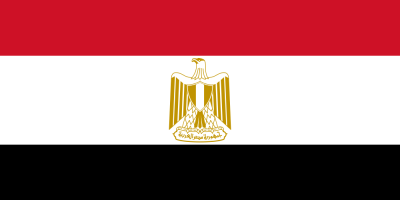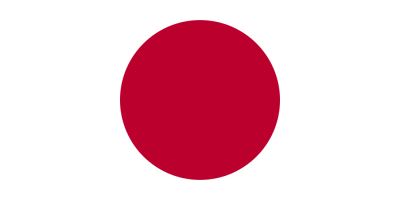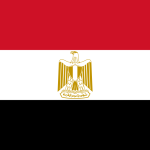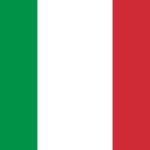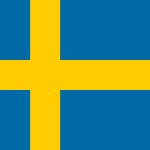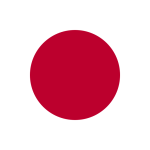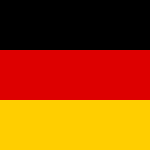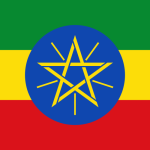Bhutan flag color codes contains vivid colors that represent different aspects of this small Himalayan country. If you want to recreate the iconic Bhutan flag colors for a website, app or graphic design, you’ll need the precise Bhutan flag color codes. This article provides the HTML HEX, RGB, PANTONE, HSL, CMYK, HWB and NCOL values for the colors found on the Bhutan flag. Read on to get the specific Bhutan flag color codes you need for digital or print projects.
Table of Contents
What are the colors of Bhutan flag?
The colors of the flag of Bhutan are:
- Yellow: Represents the Buddhism and Drukpa Kagyu tradition that is followed by the state religion in Bhutan. The specific yellow used is Pantone 107 C.
- Orange: Symbolizes the Buddhist spiritual tradition of Drukpa Kagyu in Bhutan. The exact orange color is Pantone 151 C.
- Red: Stands for the bazar (temporal authorities). The red color on the Bhutan flag is Pantone 186 C.
So in summary, the three colors are:
- Yellow (Pantone 107 C)
- Orange (Pantone 151 C)
- Red (Pantone 186 C)
This unique color combination forms the striking and iconic flag of the Kingdom of Bhutan.
Bhutan flag color codes & Color Names:
ORANGE
| Color Model | Value |
|---|---|
| HTML | #FFA100 |
| HEX | FFa100 |
| RGB | 255, 161, 0 |
| PANTONE | 137 C |
| HSL | 38°, 100%, 50% |
| CMYK | 0%, 36%, 100%, 0% |
| HWB | 38°, 0%, 0% |
| NCOL | #E56300 |
WHITE
| Color Model | Value |
|---|---|
| HTML | #FFFFFF |
| HEX | FFFFFF |
| RGB | 255, 255, 255 |
| PANTONE | N/A |
| HSL | 0°, 0%, 100% |
| CMYK | 0%, 0%, 0%, 0% |
| HWB | 0°, 100%, 0% |
| NCOL | #FFFFFF |
GREEN
| Color Model | Value |
|---|---|
| HTML | #007A4D |
| HEX | 007A4D |
| RGB | 0, 122, 77 |
| PANTONE | 342 C |
| HSL | 150°, 100%, 24% |
| CMYK | 100%, 0%, 37%, 52% |
| HWB | 150°, 37%, 52% |
| NCOL | #005A36 |
What is the meaning of colors in the Bhutan flag?
The colors of the flag of Bhutan hold symbolic meaning:
Yellow – Represents the country’s Buddhist spiritual tradition. Specifically, it symbolizes the Drukpa Kagyu Buddhist sect that is practiced as the state religion in Bhutan. The yellow invokes the tradition of Buddha’s golden robes.
Orange – Also represents Drukpa Kagyu Buddhism, the state religion. The orange shade is known as “dharma rays” and symbolizes the wisdom of Buddha’s teachings spreading across the country and world.
Red – Stands for the “secular” authority or civil administration of the nation. The color red invokes the bazaar (marketplace) and the non-religious temporal power of the state over its people.
So in summary:
Yellow = Buddhism & Drukpa Kagyu tradition
Orange = Buddha’s wisdom & teachings
Red = Secular/civil authority
The vivid flag encapsulates key aspects of Bhutanese culture, heritage, spirituality and governance. The unique color symbolism reflects the nation’s self-identity as a Buddhist kingdom.
Explore More Flag Colors:
FAQs: Frequently Asked Questions:
Is Bhutan a rich or poor country?
Bhutan is considered to be a lower-middle-income country. However, determining whether a country is “rich” or “poor” can depend on various factors, and economic classifications can change over time.
Bhutan has made significant progress in terms of economic development and has a unique approach to measuring its well-being, focusing on Gross National Happiness (GNH) rather than solely on traditional economic indicators. Bhutan’s economy has been gradually diversifying, and the country has been working on sustainable development policies.
Is Bhutan expensive?
Bhutan is often considered a destination with a relatively higher cost of travel compared to some other countries. The Bhutanese government has a policy of promoting high-value, low-impact tourism, which involves a daily tariff for all tourists. This tariff is designed to ensure that tourism in Bhutan is sustainable and that visitors have a unique and culturally immersive experience.
What is Bhutan famous for?
Bhutan is famous for several distinctive aspects, making it a unique and culturally rich destination. Some of the things Bhutan is renowned for include:
Gross National Happiness (GNH): Bhutan is well-known for prioritizing the well-being and happiness of its citizens over purely economic measures. The concept of Gross National Happiness is an important guiding principle in Bhutan’s governance and development policies.
Stunning Landscapes: Bhutan is characterized by its breathtaking and diverse landscapes, including the towering Himalayan mountains, lush valleys, and pristine forests. The country’s commitment to environmental conservation contributes to its natural beauty.
Unique Architecture: Bhutanese architecture is distinctive, featuring traditional structures adorned with colorful paintings and intricate woodwork. Dzongs (fortresses), monasteries, and traditional houses showcase the country’s rich cultural heritage.
Is Bhutan a Hindu country?
Bhutan is not a Hindu country; it is a Buddhist-majority nation. The majority of Bhutanese people practice Buddhism, and the country’s culture and traditions are deeply rooted in Tibetan Buddhism. The state religion of Bhutan is the Drukpa Kagyu school of Vajrayana Buddhism.
How many Muslims are in Bhutan?
Bhutan is a predominantly Buddhist country, and the Muslim population is a minority. The exact percentage or number of Muslims in Bhutan can vary, and reliable and up-to-date statistics on religious demographics might be limited.
The majority of the population in Bhutan practices Buddhism, and there are also Hindu communities, especially in the southern regions. The Muslim population is relatively small, and they are a minority within the diverse religious landscape of the country.
What are 3 major problems in Bhutan?
Bhutan has made significant progress in various aspects, but like any country, it faces certain challenges. It’s important to note that the situation can change, and the following issues might have evolved. As of my last update, three major challenges in Bhutan include:
Youth Unemployment: Bhutan has been grappling with the issue of youth unemployment. The country has a young population, and creating sufficient employment opportunities for the youth is crucial for sustainable economic development. Efforts have been made to address this issue through various policies and initiatives.
Dependency on Hydropower: Bhutan’s economy is heavily reliant on hydropower exports, and a significant portion of its revenue comes from selling electricity to neighboring countries. While hydropower has been a key driver of economic growth, it also exposes Bhutan to potential risks such as fluctuating demand and climate-related challenges that can affect hydropower generation.
Is visa required for Bhutan?
Yes, a visa is required for travelers visiting Bhutan. Bhutan has a unique approach to tourism, emphasizing high-value, low-impact tourism to preserve its culture and environment. To travel to Bhutan, tourists are required to book their trip through an authorized Bhutanese tour operator. The tour operator will then process the visa application on behalf of the traveler.
How much will Bhutan trip cost?
minimum daily tariff for tourists in Bhutan typically covers the following:
Accommodation: Basic accommodations are included in the daily tariff. If you choose higher-end accommodations, the overall cost will increase.
Meals: The daily tariff covers meals as well. Bhutanese cuisine is often included in the package.
Transportation: The cost includes ground transportation within Bhutan, including airport transfers and transportation to various attractions.
Guide Services: A licensed Bhutanese guide is usually included in the package to provide insights into the culture, history, and attractions.
Cultural Programs and Entrance Fees: Some cultural programs and entrance fees to attractions are also covered.
Is Bhutan a good place to live?
The suitability of Bhutan as a place to live depends on individual preferences, priorities, and lifestyle choices. Bhutan has unique qualities that appeal to certain individuals seeking a serene and culturally rich environment. Here are some factors to consider:
Cultural Richness: Bhutan is known for its rich cultural heritage, traditional architecture, and the preservation of Bhutanese traditions and values. The emphasis on Gross National Happiness reflects a unique approach to well-being.
Natural Beauty: The country is blessed with stunning landscapes, including the Himalayan mountains, lush valleys, and pristine forests. For nature enthusiasts, Bhutan offers a peaceful and scenic environment.
Environmental Sustainability: Bhutan is committed to environmental conservation and maintaining a carbon-neutral status. This focus on sustainability can be appealing to those who prioritize eco-friendly living.
Community Life: Bhutanese society places importance on community ties and interpersonal relationships. This can contribute to a strong sense of community and social cohesion.
Unique Lifestyle: Living in Bhutan may offer a unique lifestyle, with a slower pace and a focus on spiritual well-being. The country’s approach to development emphasizes holistic happiness rather than purely economic measures.
However, there are also challenges and considerations:
Limited Urban Infrastructure: Bhutan’s urban infrastructure may not be as developed as in some other countries. Access to certain amenities and services might be limited in more remote areas.
Restricted Tourism Policy: While the restricted tourism policy helps preserve Bhutan’s cultural and environmental integrity, it also means that travel to and from Bhutan can be tightly regulated.
Economic Factors: Bhutan’s economy is still developing, and job opportunities may be more limited compared to more industrialized nations. This can be a consideration for those seeking specific career opportunities.

